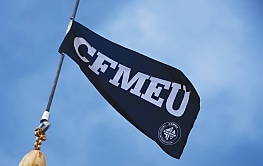
While the Federal Trade Commission seems set to ban non-compete clauses in the United States, it remains unclear whether or not Australia will follow suit, resulting in a major shake-up for workplaces.
As has been widely reported, the US-based FTC is stampeding through roadblocks that are attempting to halt its mission of eradicating non-compete clauses once and for all.
As previously explained on HR Leaders sister brand, Lawyers Weekly, non-compete clauses prevent workers from seeking or accepting new employment within an industry following termination of their employment.
HR Leader spoke to two employment law partners – Michael Byrnes from Sydney-based firm Swaab and Timothy Zahara from international practice Hamilton Locke – about the changing situation in the US and the possible flow-on effect that these new measures could have on Australia.
“In April, the USA’s FTC took the drastic step of banning non-compete clauses in employment contracts completely. Pursuant to its ruling, only existing non-compete clauses for senior executives (less than 0.75 per cent of workers) would continue to be enforceable. No new non-compete restraints for any employees would be valid,” Byrnes said.
“As anticipated at the time, however, the ruling has faced various legal challenges in the US. In short, those challenges are made on the basis that the FTC does not have the power to implement such a prohibition.”
Byrnes explained that these various legal challenges have had “mixed results”, highlighting recent examples of the different interpretations that federal judges in Philadelphia and Texas had on the impending changes.
“On 23 July, a federal judge in Philadelphia held the FTC had the power to ban anti-competitive practices, including non-compete clauses. This was at odds with a ruling from a federal judge in Texas on July 3 who issued a preliminary injunction temporarily blocking the FTC from enforcing the prohibition against various business interests,” Byrnes said.
“It is important to note that the US cases turn on the scope of authority of the FTC rather than the substantive merits of a ban on non-compete clauses.”
Byrnes believes that the “FTC policy will continue to be cited as a position worth emulating”. Here in Australia, the federal government’s ongoing Competition Review is closely monitoring these developments.
Zahara said: “The taskforce conducting the review issued an Issues Paper in April this year, inviting public comment on, amongst other things, whether policy approaches adopted in overseas jurisdictions, including the US, could be suitable for Australia.”
“The issues paper is now closed for comments, and the taskforce is due to advise the government of the outcomes from consultation during the second half of this year.”
In terms of changes to non-compete clauses happening in Australia, Byrnes cited the comments that the Assistant Minister for Competition, Charities and Treasury, Dr Andrew Leigh, publicly stated, showing his deprecation towards the clauses and how they constrain workers.
“Dr Leigh has adopted a position that is highly critical of the operation and impact of non-compete clauses applying to workers (with specific reference to partners of professional services firms),” Byrnes said.
“This was the latest in a series of opinion pieces from Dr Leigh in a similar vein. The salient question is not if there will be attempted reform of non-compete clauses in employment, but rather what form it will take.”
Kace O'Neill
Kace O'Neill is a Graduate Journalist for HR Leader. Kace studied Media Communications and Maori studies at the University of Otago, he has a passion for sports and storytelling.










